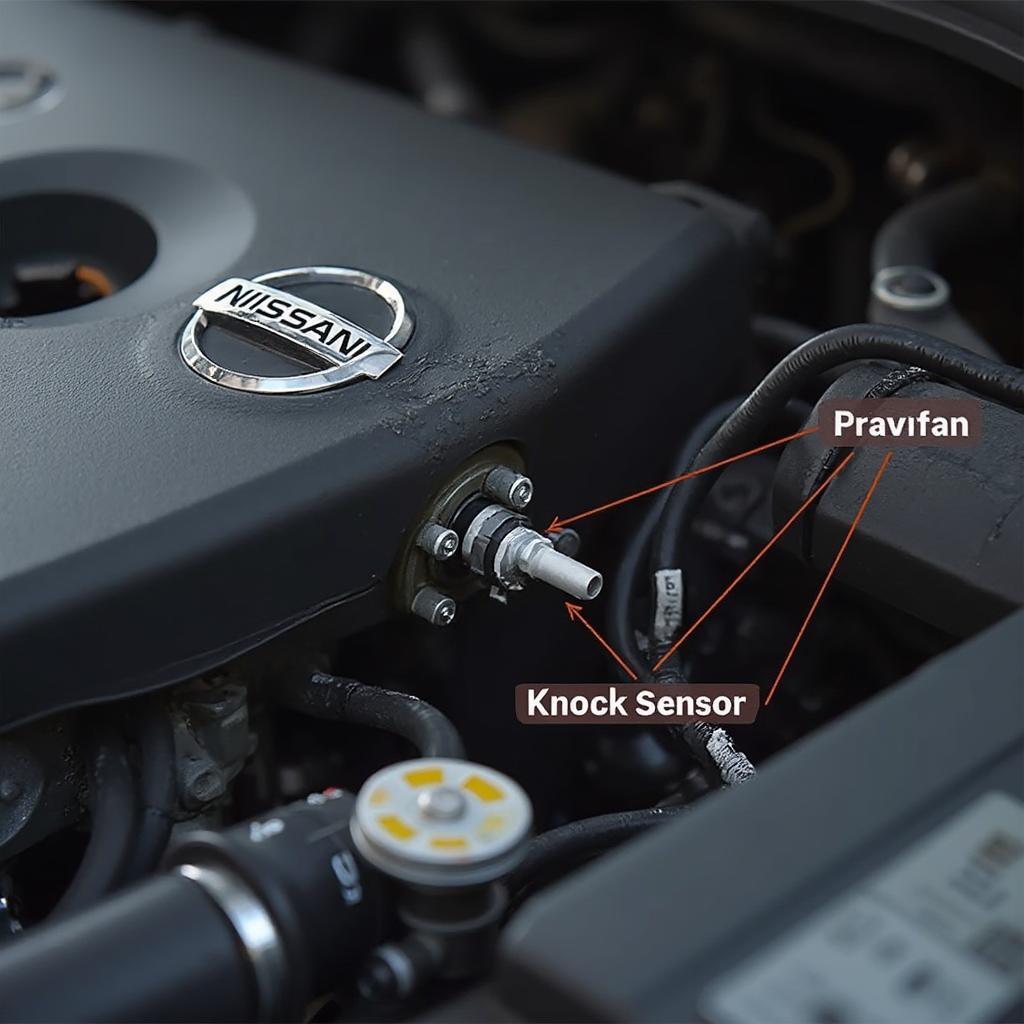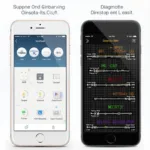The dreaded check engine light – a constant source of worry for car owners. When it illuminates your dashboard, it can signal a range of issues, some minor, some potentially serious. In the case of Nissan vehicles, one common culprit behind the illuminated check engine light is the OBD2 code P0325, which indicates a malfunction in the knock sensor circuit.
This comprehensive guide delves deep into the P0325 code, explaining its implications, potential causes, symptoms, diagnostic procedures, and repair options specifically for Nissan owners.
Understanding the Knock Sensor and Its Importance
Before we dive into the specifics of the P0325 code, it’s crucial to understand the vital role the knock sensor plays in your Nissan’s engine performance and health.
What does a knock sensor do?
In simple terms, the knock sensor acts as your engine’s “ears.” It’s a small, sensitive piezoelectric device typically located on the engine block or cylinder head. Its primary function is to detect abnormal combustion events known as “knocking” or “detonation.”
Why is knock detection important?
Knocking occurs when the air-fuel mixture in the combustion chamber ignites unevenly or prematurely, creating pressure waves that collide and produce a characteristic knocking or pinging sound. Prolonged knocking can lead to significant engine damage, including:
- Damaged pistons
- Worn cylinder walls
- Broken spark plugs
- Damaged engine bearings
How the knock sensor protects your engine:
The knock sensor detects these abnormal vibrations and transmits a signal to the Engine Control Unit (ECU), the “brain” of your car’s engine management system. The ECU then adjusts the ignition timing to prevent further knocking and protect the engine from damage.
Decoding the P0325 Code: Knock Sensor 1 Circuit Malfunction (Bank 1 or Single Sensor)
Now, let’s decipher what the P0325 code specifically signifies.
- P0325: This code indicates a problem within the knock sensor 1 circuit.
- Knock Sensor 1: Refers to the primary knock sensor in engines equipped with multiple sensors. In engines with a single sensor, it’s the only knock sensor.
- Circuit Malfunction: Indicates a problem with the electrical circuit that the knock sensor uses to communicate with the ECU. This could be due to a faulty sensor, wiring issue, or a problem with the ECU itself.
- Bank 1: In engines with two cylinder banks (V6, V8 engines), Bank 1 refers to the side of the engine containing cylinder #1.
What Causes the P0325 Code in Nissans?
A range of factors can trigger the P0325 code in Nissan vehicles. Here are some of the most common culprits:
- Faulty Knock Sensor: The most common cause is a malfunctioning knock sensor itself. Over time, the sensor can wear out, become damaged by heat and vibration, or fail due to internal faults.
- Wiring Problems: Damaged, corroded, or loose wiring within the knock sensor circuit can disrupt the signal transmission between the sensor and the ECU.
- Loose or Broken Connector: The electrical connector attaching the knock sensor to the wiring harness can become loose or damaged, leading to a poor connection.
- Faulty ECU: While less common, a malfunctioning ECU can also trigger the P0325 code. The ECU might be unable to correctly interpret the signals from the knock sensor or adjust the ignition timing accordingly.
- Low-Quality Fuel: Using low-octane fuel can lead to engine knocking and potentially trigger the P0325 code as the ECU struggles to compensate for the poor combustion.
Recognizing the Symptoms of a P0325 Code
While the illuminated check engine light is a clear indicator, other symptoms might accompany the P0325 code:
- Engine Knocking Noise: You might hear a distinct knocking or pinging sound coming from the engine, particularly under acceleration or load.
- Reduced Engine Performance: The ECU might retard the ignition timing to prevent knocking, leading to decreased engine power and acceleration.
- Poor Fuel Economy: Altered ignition timing can negatively impact fuel efficiency.
- Hesitation or Stalling: In some cases, the engine might hesitate or stall due to the ECU’s inability to optimize ignition timing.
Diagnosing the P0325 Code in Your Nissan
Accurately diagnosing the root cause of the P0325 code requires a systematic approach:
- Retrieve the Code: Begin by reading the OBD2 codes using a code reader or scanner. This will confirm the P0325 code and rule out other potential codes.
- Visually Inspect the Knock Sensor and Wiring: Check the knock sensor for any visible damage, looseness, or corrosion. Examine the wiring harness for any fraying, burns, or loose connections.
- Test the Knock Sensor: Use a multimeter to test the sensor’s resistance and voltage output according to your Nissan’s specific service manual specifications.
- Inspect the Connector: Examine the knock sensor connector for any damage, bent pins, or corrosion. Ensure a tight and secure connection.
- Check the ECU: If the knock sensor and wiring check out, the ECU might require testing or reprogramming. However, this step is best left to qualified technicians with specialized equipment.
Repairing the P0325 Code: Restoring Your Nissan’s Performance
Once you’ve pinpointed the source of the P0325 code, you can proceed with the appropriate repairs.
- Replace the Knock Sensor: If the sensor is faulty, replacement is the most effective solution.
- Repair Wiring Issues: Damaged or corroded wiring requires repair or replacement to ensure proper signal transmission. Secure any loose connections.
- Replace the Connector: A damaged connector will need replacement with a new one.
- Address ECU Problems: ECU issues often require specialized knowledge and tools. Consult a qualified mechanic for diagnosis and potential repair or replacement.
Frequently Asked Questions about Nissan OBD2 Code P0325
Q: Can I still drive my Nissan with the P0325 code?
A: While you might be able to drive short distances, it’s not recommended. Driving with a faulty knock sensor or its circuit can lead to serious engine damage over time.
Q: How much does it cost to fix the P0325 code?
A: The repair cost depends on the underlying cause. A knock sensor replacement is relatively inexpensive, while ECU repairs can be significantly more costly.
Q: Can a bad knock sensor cause other problems?
A: Yes, a malfunctioning knock sensor can indirectly cause issues like reduced fuel economy, poor engine performance, and potentially damage to other engine components due to uncontrolled knocking.
Seeking Professional Help for Your Nissan’s P0325 Code
While some car owners might feel comfortable tackling simpler repairs like a knock sensor replacement themselves, it’s often advisable to seek professional assistance for diagnosing and resolving OBD2 codes, particularly those involving complex electrical systems.
Need expert help with your Nissan’s P0325 code?
Contact our team of certified technicians at OBDFree. We offer comprehensive diagnostic services and expert repairs to get your Nissan back on the road quickly and safely.
Contact us today!
WhatsApp: +1(641)206-8880
Email: [email protected]
Our dedicated customer support team is available 24/7 to assist you with any questions or concerns.


